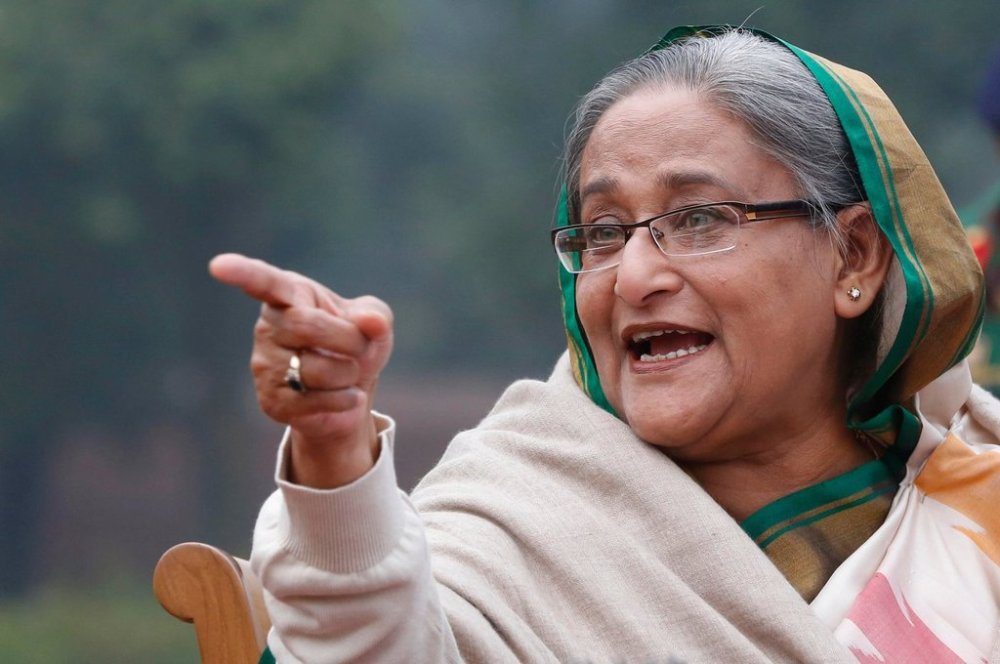Bangladesh prosecution seeks death penalty for ex-PM Sheikh Hasina over protest killings
Advertisement
Read this article for free:
or
Already have an account? Log in here »
To continue reading, please subscribe:
Monthly Digital Subscription
$0 for the first 4 weeks*
- Enjoy unlimited reading on winnipegfreepress.com
- Read the E-Edition, our digital replica newspaper
- Access News Break, our award-winning app
- Play interactive puzzles
*No charge for 4 weeks then price increases to the regular rate of $19.00 plus GST every four weeks. Offer available to new and qualified returning subscribers only. Cancel any time.
Monthly Digital Subscription
$4.75/week*
- Enjoy unlimited reading on winnipegfreepress.com
- Read the E-Edition, our digital replica newspaper
- Access News Break, our award-winning app
- Play interactive puzzles
*Billed as $19 plus GST every four weeks. Cancel any time.
To continue reading, please subscribe:
Add Free Press access to your Brandon Sun subscription for only an additional
$1 for the first 4 weeks*
*Your next subscription payment will increase by $1.00 and you will be charged $16.99 plus GST for four weeks. After four weeks, your payment will increase to $23.99 plus GST every four weeks.
Read unlimited articles for free today:
or
Already have an account? Log in here »
DHAKA, Bangladesh (AP) — A prosecutor in a special domestic tribunal in Bangladesh sought the death penalty Thursday for ousted Prime Minister Sheikh Hasina in a case involving charges of crimes against humanity in a mass uprising last year that forced her to leave the country.
During the protests in July and August 2024, hundreds of people including students, security officials and political activists were killed in the weekslong violence.
Chief Prosecutor Tajul Islam, in his closing arguments to the International Crimes Tribunal in the capital, Dhaka, also called for former Home Minister Asaduzzaman Khan to be sentenced to death because of the gravity of his crimes.

In his closing, the prosecutor left a decision on the sentence for former police chief Chowdhury Abdullah Al-Mamun up to the tribunal. Al-Mamun, who is in custody, became a state witness against Hasina and had earlier pleaded guilty.
Hasina has been in exile in India after fleeing the country on since Aug. 5 last year. Khan is also believed to be in India.
More proceedings are needed to complete the trial before a verdict is rendered.
Hasina did not appoint any lawyers to represent her, and she had earlier rejected the trial process as a “kangaroo court.”
The next proceedings will be held Monday. A state-appointed counsel for Hasina has sought a week to present his arguments.
Bangladeshi Nobel Peace Prize laureate Muhammad Yunus took over as the head of an interim government three days after Hasina’s fall. Yunus vowed to punish Hasina and banned the activities of her Awami League party.
Islam in his arguments called Hasina the “mastermind and principal architect” behind the crimes against humanity committed during the uprising.
The United Nations in a February report said up to 1,400 people may have been killed in the violence, while the country’s health adviser under the interim government said more than 800 people were killed and about 14,000 were injured.
Hasina and her party have raised questions about the figures and demanded independent investigations.
Referring to the U.N. figures, Islam said Thursday that if each of the 1,400 deaths were to be punished separately, Hasina should get 1,400 death sentences.
He told the tribunal that Hasina “personally ordered the killings.”
No immediate reaction from Hasina’s party was available.
Thursday’s development came as tensions mount in Bangladeshi politics over the indictments of 25 former and serving military officials, including some former heads of a powerful military intelligence unit.
They have been indicted in three separate cases that include charges of enforced disappearances during Hasina’s 15-year rule.
The military said Sunday that 15 officers were taken in custody and kept in a jail inside the Dhaka Cantonment, where army headquarters are located.
Many of the suspected officials are believed to have left the country.
Yunus has said repeatedly that an election would be held in February to hand over power to a democratically elected government. Hasina’s Awami League party has little chance to join the race as its activities have remained banned.

